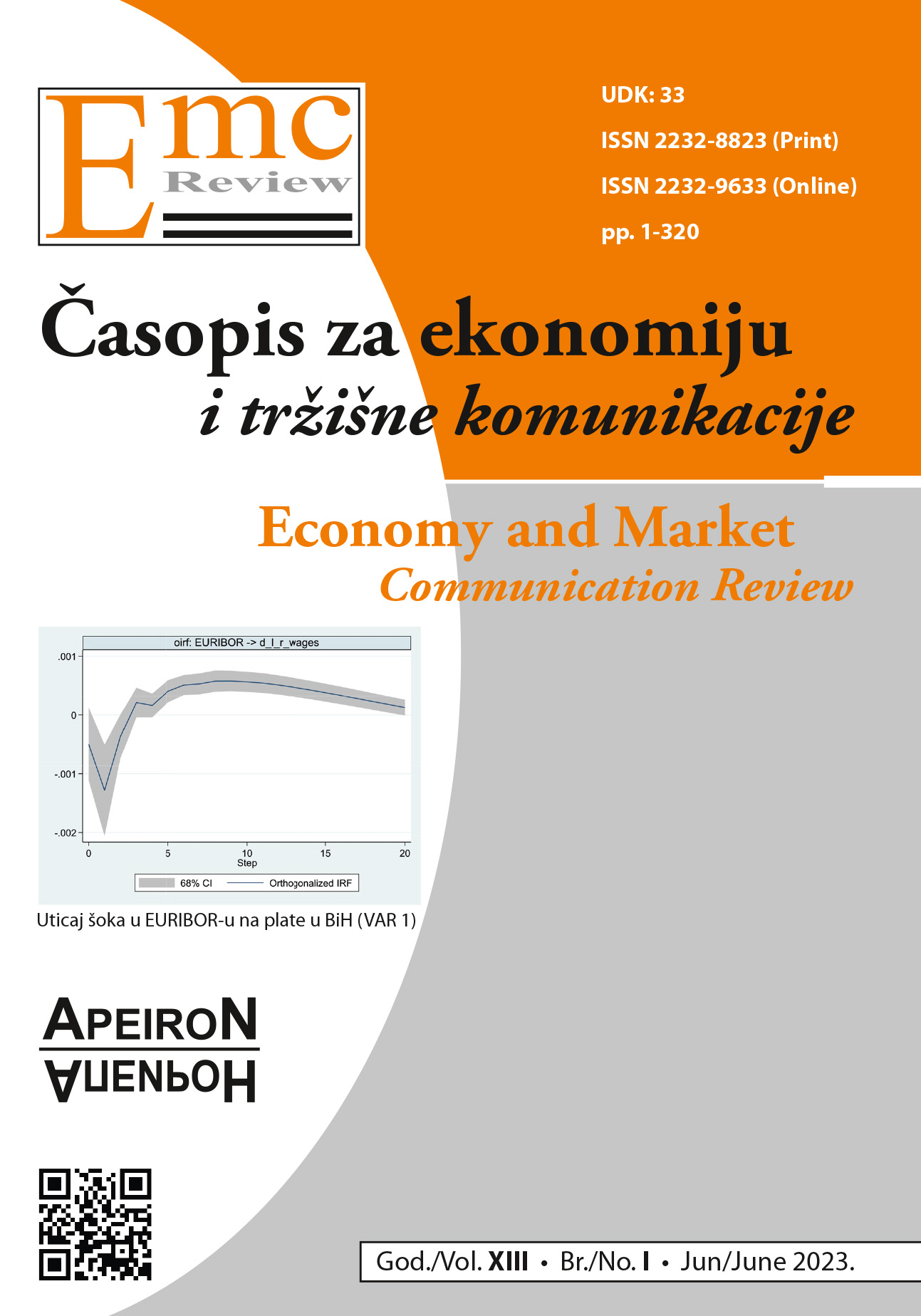THE INFLUENCE OF RLAH ON THE BUSINESS OF TELECOM OPERATORS ON THE MARKET OF BOSNIA AND HERZEGOVINA
DOI:
https://doi.org/10.7251/EMC2301288BAbstract
In the era of general globalization and transition, the accession of Bosnia and Herzegovina to the European Union is considered as a strategic priority. The integration of Bosnia and Herzegovina (hereinafter BiH) into the European Union (hereinafter EU) is a very significant process that requires fundamental changes in society, and therefore the inclusion and full engagement of all social and especially economic subjects in BiH is necessary.Bosnia and Herzegovina has always belonged to the European political, cultural, and economic area. The process of European integration requires a comprehensive adjustment of policies, institutional framework and legal system with the aim of reaching European standards in all areas. The process of legal harmonization and acceptance of European standards implies extensive internal reforms, general consolidation of the system, stronger economic development and more intensive foreign policy activities in areas that affect the dynamics of relations between BiH and the EU. The prospect of membership in the EU is an extremely strong incentive for the continuation of already started reforms in BiH and the initiator of the process that should enable the creation of an economic, legal, organizational and social structure capable of operating in accordance with EU rules. Ensuring non-discriminatory access to telecommunications services and their high quality at affordable prices form one of the bases of the policy of developing BiH society and protecting the interests of BiH citizens. Global measures for the implementation of such a policy are: liberalization of the telecommunications market, encouragement of the development of the telecommunications sector and ensuring effective control measures with the aim of protecting users’ rights and reducing barriers to the entry of new operators.The subject of the research in this paper is the assessment of the impact of the current EU Roaming Regulation on the telecommunications market of BiH, that is, the business income of telecom operators from mobile telephony services, as well as the user experience related to the use of services in roaming. The basic question that arises is: How do companies operating in the field of telecommunications adapt their prices and business conditions to the EU requirements? What are the experiences of applying these provisions in EU countries? Can some measures be taken in the context of maintaining business and how to communicate with the users who are directly affected by the mentioned changes, in a positive context? The aim of the research is to assess the effect of the implementation of the Decision of the Regulatory Agency for Communications of BiH (hereinafter referred to as the Agency) on the prices of roaming services in public mobile communication networks, which stipulates the obligation to determine the maximum prices for roaming services and the termination of regulated roaming calls in public mobile communication networks.
